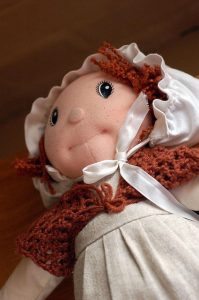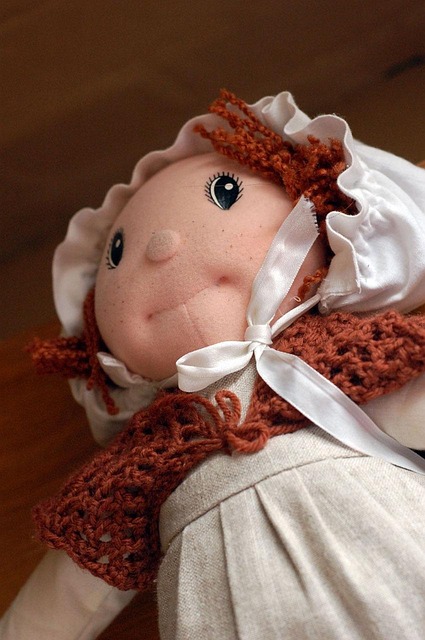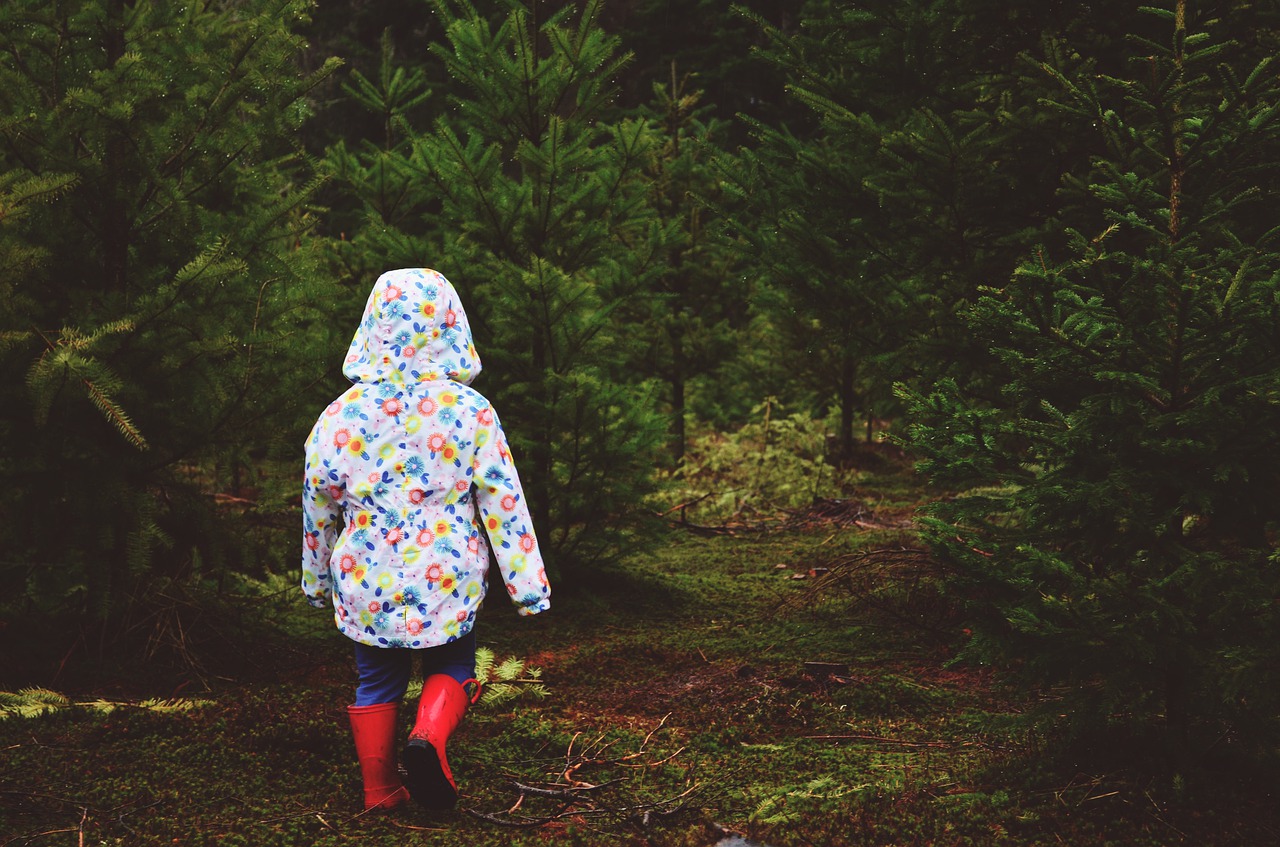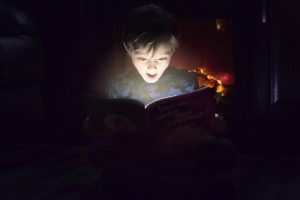Not Your Typical Tween Drama
It’s been a common occurrence here of late. A small voice with a note of panic echoing down the stairs at night.
“Mum, can you come upstairs?”
When I get there, I find a terrified preteen. Sometimes she’s hiding under her covers with only her eyes peeping out. Other times, she’s outside her room on the landing hugging a stuffie she’s had since she was literally a baby tight to her chest.
It’s a scene I recognize all too well from my own childhood.
Most of the time when we talk about childhood development, we speak in terms of physical, mental, and emotional changes. We discuss hormones, acne, BO, and tempestuous behavior. Only very rarely do we see discussion of *other* changes – if at all.
Liminality and Discernment
The transition from child to teenager is a liminal time, and in my experience, one of intense spiritual development. There’s a ramping up of activity and expanding of senses that is often scary, and sometimes even deeply traumatic.
As a child, I was yet to develop the ability to discern between helpful and harmful, and because of this, even the slightest hint of uncanniness scared me. I’ve always seen the world as being somewhat “pixelated,” even while wearing glasses. If you’ve ever sat so close to the TV you can switch between seeing the full picture and the pixels, it’s similar to that. The only exceptions for me – the only solidity – are ensouled beings.
As a child, I learned to notice the “pixels” getting “buzzy” as a precursor to the temperature drop preceding a ghost. I also learned to leave the room when my dog did – that he tended to pick up the coming uncanniness even before the change in pixels.
I suspect it’s similar for my child. Helpful or harmful, it doesn’t matter. At the first signs of uncanniness, she’s now afraid.
A Blast From The Past
In many ways, I was lucky as a child growing up with that kind of sight. My dad’s family have been Spiritualists for generations – pretty much since the movement landed on their shores – and family lore suggests they were involved in similar practices before that era as well. Now, I’m not claiming to have learned “ye olde craft” unbroken here. But I did grow up with a dad who healed people and who got taken over by his spirit guide from time to time. Unlike so many others, I had the benefit of someone to talk to about my experiences, someone to learn from.
More importantly though, I had someone to help when things got bad.
For example, once when I was 17, I made a rag doll. That’s not much of a story on its own, but it got possessed by something deeply malevolent – the most malevolent being I’ve felt to date. Long story short, my dad got possessed by his guide and took care of it, and I never want to see a doll’s facial features move again.
Sidenote #1: people could have saved themselves so much of that Annabelle nonsense had they just done what my dad did with the ragdoll I made and tossed it in the wheelie bin.
Sidenote #2: this is also why I don’t make dolls anymore. Not unless they’re to be consecrated as a “house” for someone specific. And I do that consecrating as soon as I’m finished.

So, that was a good thing. Having my dad to go to was incredibly helpful. He was also the first to get me practicing sensing and manipulating energy.
The Ups And The Downs
However, it’s important to realize that there are pros and cons to every situation.
Here in the States, Spiritualism is largely practiced in churches and communities like Lilly Dale. But in Northern England, Spiritualism largely became a family-based practice passed on from parents to children. My dad learned from his parents, both of whom were practitioners. I’m not sure who his mum learned it from (though her siblings were also Spiritualists), but his dad also learned it from his parents in turn (both of whom also came from families of practitioners).
What I’m saying, is that there’s no tidy and standardized tradition here. The practices of my family are one of many expressions of that form of Spiritualism.
Initially, Spiritualism began with the initial premise that we continue to exist after death and that communication beyond the “veil” is possible (i.e., necromancy). That was how it began in 1850s upstate New York. But over the years, elements of Theosophy and Hermeticism also made their way into the movement as well.
Nowadays, ideas spread like wildfire online. However, prior to the internet, ideas largely spread between family groups within this specifically northern English context via random encounters with other Spiritualists while out and about in the world.
(Spiritualists, like Witches, have a tendency to “sniff” each other out, you see.)
Imagine a giant game of “Telephone” where no one knows who is playing or how many players there even are, and then the information from that game being used in necromancy and healing. That’s kinda close to what it was like. Sometimes the other player you knew was “Greg who works in the fruit and veg section at the supermarket on Thursdays.”
A Brief Interlude
For what it’s worth, I consider that influx of outside influences detrimental to Spiritualism. Kardec was absolutely right to guard against them by building out the doctrine of Spiritism. Among other issues, the Theosophical elements reduced the feorin (fairies) of my local area to “lower level elementals,” helping to erode traditional understandings of those peoples, and introduced hierachies among spiritual paths (e.g Dion Fortune’s formulation of the “green ray” path being lesser than others).

And Back To The Story…
In addition to this rampant eclecticism, many Spiritualists in the area where I grew up also placed a great deal of value on being taught “by Spirit” (as opposed to by other humans). As far as they were concerned, that is where the most power lies. Aside from his parents, my dad’s main teacher is “Spirit.” And even a few years shy of 80 and despite some serious health issues, the man is still a presence. Sit next to my dad when he’s even slightly in that mode, and the hairs on your arms stand up on end. Ouija boards used to stop working around him just because he told them he had no intention of talking to them.
But do you see what I mean about none of this being tidy? Despite what people may imagine about growing up in a family tradition like that, there is no set anything. Even unbroken for a few generations, there is nothing pristine being handed down. Just a whole lot of magic magpies doing the best with what they have (while calling up the dead, dealing with hauntings, and casually getting possessed by spirits – as you do).
One of my dad’s biggest challenges in getting me through these developmental stages was our different experiences of the dead and otherworldly. Where I see, hear, and otherwise sense the dead and other, he can sense when somebeing is there, but little else. He relies on his guide for discernment and doing what needs to be done from there. Clearly at a loss and desperate to help me, my dad often asked the other Spiritualists he encountered for their advice, and this is where the pitfall I now hope to avoid with my kid emerged.
Welcome To Rando SpirtualismLand (Flag Probably Not Coming Any Time Soon)
As a parent, I now know what it’s like to see my child too terrified to go into her room. The child I was has never forgotten what lies beneath the requests to bring the cat with her to bed at night (regardless of the cat’s thoughts on the matter). I don’t blame my dad one bit for any of this. If anything, I admire his willingness to seek outside help when so many others would have simply pretended they weren’t out of their depth. The only thing I wish he’d done differently was trust in himself and his own wisdom more.
Because unfortunately, the advice my dad returned with was poison.
Nowadays, we can ask an entire world of people for advice thanks to the Internet. Before then though, you had library books and the word of others. The other that time was someone he’d initially met while at the supermarket, chatted with, then found that both he and the guy he was conversing with were each stood off to the side of their bodies.
“Shall we get back to our bodies then?”
“Aye, we’d better had.”
And honestly, that’s just another day in rando SpiritualismLand.

My dad had absolutely no idea that the advice he was conveying was the Law of Attraction or that it would prove harmful. From his perspective (as someone who didn’t see and hear these beings), it must have seemed an easy solution for me to stop being a magnet for spirits.
“Just raise your vibration. Like attracts like. Raise your vibration, and then only the good beings will bother you. A home full of love is the only protection we need.”
Well, that went about as well as you’d imagine. I had no idea what on earth these “vibrations” were or how to “raise them.” Worse still, I felt as though I was at fault for my experiences. And even worse than that, I felt as though I had nowhere to turn to feel safe – a core need for a child.
Sometimes, folks, bad advice is better than none at all.
A Better Story?
Nowadays, I tell my kid that children like her who see and hear as she does are like beacons. I ask her to remember what it was like to look out of the plane window at night the last time we flew, and to imagine those sparse lights over the rural areas children just like her. She is bright to the dead and Other through no fault of her own.

Ironically, this was the same thing my dad used to tell me *before* going to his friend for advice. It’s really a pity how often our desperation to do right by our children drives us to the bad counsel of others over the wisdom of our own souls. As I said earlier, I wish my dad had trusted himself more.
At the age of 13, I took my first steps in Witchcraft. A simple circle – nothing too taxing. But that circle was life-changing. Now, I could write about how I felt like I was right where I was meant to be – that I was stepping into alignment with fate(because I absolutely did) – but the most striking thing for me at that moment was actually the feeling of finally having a barrier – of having tools.
Suddenly, I was no longer relying on a love-filled home for protection. I mean, don’t get me wrong: love is powerful. And my parents’ home was and is indeed filled with love. However, there are situations where love just simply isn’t enough, and this happened to be one of them.
My Dad’s Shoes
Now, I find myself fully in my dad’s shoes. It’s my turn to pass on what I know while hoping I’m doing the right thing. Family lore aside, I can’t claim to come from a lineage of Witches or cunning folk, but my own walk along the crooked path has brought Witchcraft to that line of Spiritualists regardless. Whether my daughter makes her own way down that same path is entirely up to her. I can only teach her what I know, give her tools she needs, and hope she comes through this empowered and cunning, ready to dance with the numinous, breathe blessings into teas, and hurl hexes as needed. With luck, she’ll avoid the years of struggle and eventual desensitization I went through.
When I first sat down to write this post, I intended to write a discussion of practical measures for parents going through the same thing. Instead, I wound up telling you my experiences, my dad’s efforts to help me, and how I now find myself in his shoes. Hopefully, this serves as a warning against the Law of Attraction when supporting kids through this stage and a reminder of the importance of good barriers. I also hope that my story makes it clear that none of us have this down – that even the most loving parents can and do make mistakes, and that not even a childhood with necromancers and healers guarantees greater knowledge or success.
At the end of the day, all we can do as parents is our best by our children. Such has been the way of parenthood since the very beginning, and despite the many, many “secret sauce” solutions offered by experts of various stripes, I doubt that’s going to change.
My dad may not have known how to keep these beings from our home, but he was right about love being important. It isn’t a barrier, but it is sustaining. So, make sure your kids know they’re loved – that you’re always there for them no matter how weird or scary it gets, and be that barrier as needed. You may not get it right, but as someone who’s come through that particular fire with burned feet, believe me when I say that love can be the difference between broken and whole.
Be well, lovely people. Until the next time!



 focused more on practical matters as well as age-appropriate dissemination of knowledge. Because as John wisely said (and it bears repeating here): “Young children shouldn’t be burdened with troublesome projections about the future.”
focused more on practical matters as well as age-appropriate dissemination of knowledge. Because as John wisely said (and it bears repeating here): “Young children shouldn’t be burdened with troublesome projections about the future.” We sewed masks, traded supplies with our neighbors, and shared any and all tip-offs we got about where to find help and supplies.
We sewed masks, traded supplies with our neighbors, and shared any and all tip-offs we got about where to find help and supplies. environmental challenges to deal with as well.
environmental challenges to deal with as well. Membership in a religion can confer a host of benefits for a child. It can bring relationships and community. Religion can give children a sense of identity in which to anchor themselves. Depending on the religion in question, a child may even get to make decisions within ritual and possibly also gain a feeling of control. Participation in religious groups can also give a child the opportunity to engage in acts of generosity which can make them feel good. Religious communities often meet the physical needs of children too through their charitable programs. And finally, participation in rituals and holidays can help give a child a sense of routine and prove grounding.
Membership in a religion can confer a host of benefits for a child. It can bring relationships and community. Religion can give children a sense of identity in which to anchor themselves. Depending on the religion in question, a child may even get to make decisions within ritual and possibly also gain a feeling of control. Participation in religious groups can also give a child the opportunity to engage in acts of generosity which can make them feel good. Religious communities often meet the physical needs of children too through their charitable programs. And finally, participation in rituals and holidays can help give a child a sense of routine and prove grounding. For those of you who have never played RPGs (Role-Playing Games), they are a form of collective storytelling in which players and the person running the game imaginatively co-create story together.
For those of you who have never played RPGs (Role-Playing Games), they are a form of collective storytelling in which players and the person running the game imaginatively co-create story together. mythological themes (some of them particularly well researched) and can be an avenue for learning Pagan and Heathen mythologies.
mythological themes (some of them particularly well researched) and can be an avenue for learning Pagan and Heathen mythologies. chimney in place for reasons). I was the kid in homemade clothes with thrift store Christmas gifts bulking up the presents my parents scrimped and saved to get us all year. But although times were clearly not great for us then, my childhood isn’t some blot in my memory.
chimney in place for reasons). I was the kid in homemade clothes with thrift store Christmas gifts bulking up the presents my parents scrimped and saved to get us all year. But although times were clearly not great for us then, my childhood isn’t some blot in my memory.